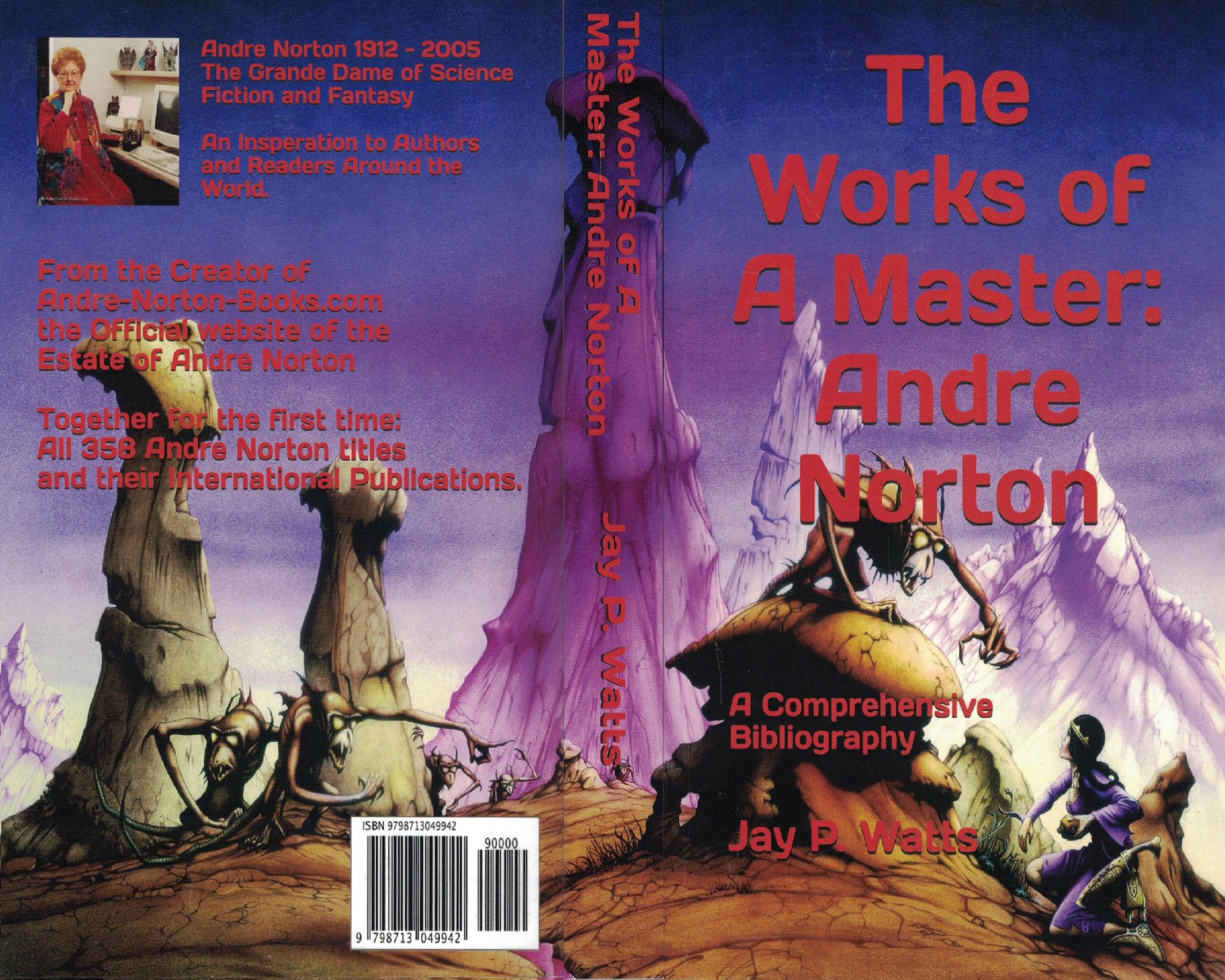Tripping the Light Fantastic in
Andre Norton's Derelict for Trade
After the earnestness of Atlantis Endgame, this entry in the Solar Queen series is quite a lot of fun. Norton’s own solo works in the series feature a somewhat raffish, somewhat beat-up spaceship with a crew of Free Traders and a tendency to fall into the worst kinds of bad luck. “What’s the worst that can happen?” isn’t a rhetorical question for the Queen. Not only does it happen, the crew has to go through complicated contortions to get back out of the mess—and just about every time, they fall right back into a new mess.
The original series is real old-fashioned science fiction, with a protagonist named Dane Thorson and his good friend Rip. But Rip is Black and their frenemy’s name is Ali, and the ship’s cook is Japanese. It’s a diverse crew for a Fifties adventure.
The addition of collaborators further opens up the series. P.M. Griffin co-wrote Redline the Stars (1993), which introduces a female medic, Rael Cofort. Sherwood Smith then took over with Derelict for Trade and A Mind for Trade. Smith adds another, nonhuman character in the first volume, who is also female. The gender balance by that point is still tipped way over toward the male, but it’s a definite start.
As I said, I had fun with Derelict for Trade. It read to me as if Norton gave Smith the keys to the Queen, along with her blessing, and told her to have at it. The result is strikingly similar to Smith’s other collaborative series, Exordium, which she wrote with Dave Trowbridge—and in fact the introductory note acknowledges his contributions to the plotting and setup of this novel. If you’ve read this one and enjoyed it, you’ll probably enjoy Exordium.
There are some characteristic Norton persons and settings. The crew of the Queen is all present and accounted for. The various forays into the Spinner, the dark underbelly of the space habitat in which most of the action takes place, recall many a subterranean quest in many a Norton novel. There are brief cameos featuring the Free Traders’ ancestral enemy, the corporate traders nicknamed I-S, along with a variety of aliens of all shapes, sizes, and degrees of strangeness.
Even so, this seems more like a Smith novel under Norton’s umbrella than a Norton novel or a fifty-fifty collaboration. There’s an actual real romance with actual real physical and emotional development. None of the villains is completely and irredeemably evil, though the main bad is a pretty nasty piece of work. We are still shown how and why he is what he is, and allowed to understand a little bit of what motivates him. The other villains or seeming villains turn out to be not quite as bad as they seemed, and even, eventually, become allies. That’s a fair departure from Norton’s rigorously dualistic universe.
As for the good guys, we see how Dane has started to grow into himself, and how the other characters have grown and changed as well. We even get to see inside the rough-hewn monolith that is Captain Jellico.
And on top of all that, there’s humor. Norton is a very earnest writer. Her characters are very serious people with very serious goals and very serious purposes, often imposed on them by incomprehensible outside forces. There’s nothing in solo Norton like the gleeful slapstick of Dane half-killing himself trying to play the bagpipes at 1.6 Earth gravity while a two-ton alien hews away at him with a broadsword. That’s pure Smith (and not a little Trowbridge).
Norton did love to fill her worlds with wide varieties of aliens, and she often tried to portray minds that differ considerably from human. But Smith adds multiple layers of complexity to the alien characters and species, creating elaborate structures of ritual and custom. The problem the crew have to solve is a complicated web of deception, murder, and high finance, and has to be resolved by high-level computer hacking.
There’s a bit of strain there between Norton’s uber-retro tapes and spools and the kind of computing that would have been the norm by the early 2000s, with chips and bots and computer viruses. The cramped antiquity of the Solar Queen becomes a point of pride for the crew—it may be ancient and tiny especially for tall lanky Dane, but it’s home. The computer question sort of slides off tapes into chips and never quite finds its way back.
Overall I would not call this a Norton novel, nor a particularly seamless collaboration. But it is entertaining, and takes familiar characters into new territory, while keeping the basic principle of the series, which is the hard-luck spaceship that always manages to come out on top in the end. We know it’s going to spiral right back down again in the next installment—and then spiral back up, thanks to the pluck and ingenuity of Dane and his chosen family.
Since my copy of Huon of the Horn has arrived, I’ll reread that next. And then we’ll check out a few more collaborations before we wrap up the Reread.


